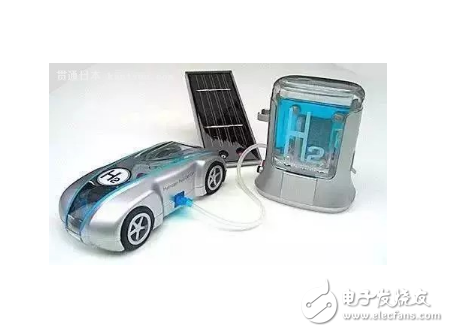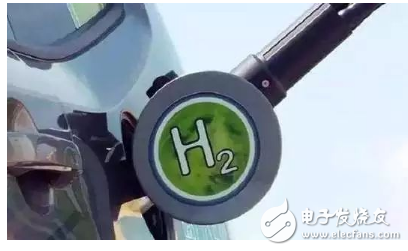Hydrogen energy is a secondary energy source. It is produced by using other energy sources in a certain way. Unlike coal, oil and natural gas, it can be directly mined. Nowadays, it is almost completely dependent on fossil fuel system. If it can be recycled, it can be recycled. Waste hydrogen can recover about 100 million cubic meters per year, which is quite impressive.
Hydrogen is recognized as a clean energy source and stands out as a low-carbon and zero-carbon energy source. In the 21st century, China and the United States, Japan, Canada, and the European Union have all formulated hydrogen energy development plans. At present, China has made many progresses in the field of hydrogen energy, and it is expected to become a leading country in hydrogen energy technology and application in the near future. One is also recognized by the international community as the most likely to lead the way in the industrialization of hydrogen fuel cells and hydrogen vehicles.
The development of new energy in the world today is imminent because the energy sources used such as oil, natural gas, coal, and petroleum gas are all non-renewable resources. The stock on the earth is limited, and human survival is inseparable from energy, so new energy sources must be sought. With the increasing consumption of fossil fuels, their reserves are declining, and one day these resources and energy will be exhausted. It is urgent to find a new energy-rich energy source that is not dependent on fossil fuels. Hydrogen is such a new secondary energy that people expect when the emergence of the conventional energy crisis and the development of new secondary energy sources. Hydrogen is at the head of the periodic table, with an atomic number of 1, a gaseous state at normal temperature and pressure, and a liquid state at ultra-low temperature and high pressure. As an ideal new energy source, it has the following characteristics.

First, the energy is high. In addition to nuclear fuel, the calorific value of hydrogen is the highest of all current fuels, three times that of gasoline. The high energy of hydrogen makes hydrogen one of the important fuels for propelling spacecraft;
Second, hydrogen itself is non-toxic, the combustion products are water, no pollution, and can be recycled;
Third, hydrogen combustion performance is good, ignition is fast;
Fourth, the use of many forms, can be gaseous, liquid or solid metal hydrides, can adapt to the different requirements of storage and transportation and various application environments. Therefore, it can be said that hydrogen energy is the most ideal and perfect energy source. As an efficient, clean and sustainable “carbon-free†energy source, hydrogen energy has been widely concerned by all countries in the world and is known as the energy of the 21st century. The development of hydrogen economy is a permanent strategic choice for mankind to get rid of fossil energy and ensure energy security.
Advantages and disadvantages of hydrogen energyadvantage:
1. Good combustion performance: fast ignition, wide flammable range when mixed with air, high ignition point and fast burning speed;
2. It is a new energy-rich energy source that is rich in reserves that does not depend on fossil fuels;
3. High calorific value: In addition to nuclear fuel, the calorific value of hydrogen is the highest among all fossil fuels, chemical fuels and biofuels;
4, less loss: can cancel the long-distance high-voltage transmission, and replace the pipeline with hydrogen transmission, the safety is relatively improved, the energy loss is reduced;
5, non-toxic, no pollution;
6, a variety of forms: the appearance of gaseous, liquid or solid metal hydride, can adapt to the different requirements of storage and transportation and various application environments;
7. High utilization rate: hydrogen eliminates the noise source of internal combustion engine and hidden danger of energy pollution, and the utilization rate is high;
8. Convenient transportation: Hydrogen can reduce the weight of fuel and increase the payload of the vehicle. This can reduce the transportation cost. Considering the total benefit of the whole society, the total social benefit is better than other energy sources;
9. Reduce greenhouse effect: Hydrogen replaces fossil fuels to minimize the greenhouse effect.

The biggest drawback is that the price is too expensive.
New energy vehicles are ultimately driven by electricity. Currently, there are only two directions in China: battery electric vehicles and fuel cell electric vehicles. If hydrogen is used instead of gasoline to enter the internal combustion engine, this is not a new energy vehicle and still belongs to the internal combustion engine.
Hydrogen can only be a hydrogen fuel cell vehicle as a new energy source for automobiles. The biggest disadvantage is that the fuel cell is too expensive. At present, the cost of a 50kw fuel cell is about 1 million RMB, no one can accept it! What is the concept of 50kw, equivalent to the displacement of gasoline engine 1.0L, how much is the current 1.0L displacement car? It takes more than a dozen cars for a battery.
At present, glass fiber storage tanks basically solve the problem of gas storage. Glass fiber tanks are resistant to 750 atmospheres and are very strong. There is also a problem of gas source. If most vehicles use hydrogen fuel cell vehicles, the gas source becomes a big problem. Therefore, this new energy vehicle can only be a supplement before nuclear fusion is fully commercialized.
Hydrogen natureHydrogen is the most abundant element in nature and the highest content in the universe, accounting for about 75%. The source of hydrogen on Earth is also very extensive. Water, fossil fuels and all organisms contain hydrogen, which can be used to produce hydrogen for energy use. It is only distributed in a few regions of the world, such as oil, natural gas, coal and other fossil energy. Hydrogen production is not limited by time and region. At the same time, hydrogen energy is a secondary energy source. After being used by humans, it can be reproduced through fossil energy and renewable energy. It is truly inexhaustible and useful. Inexhaustible and reliable sustainable energy.

Hydrogen energy is the most abundant and efficient energy source available from human beings. As an energy source, hydrogen energy has unparalleled potential development value:
(l) Hydrogen is the most common element in nature. It is estimated to constitute 75% of the mass of the universe. In addition to hydrogen in the air, it is mainly stored in water in the form of compounds, which are the most extensive substances on earth. It is estimated that, if all the hydrogen in the seawater is extracted, the total heat generated by it is 9000 times greater than the heat released by all fossil fuels on the earth.
(2) In addition to nuclear fuel, the calorific value of hydrogen is the highest among all fossil fuels, chemical fuels and biofuels, reaching 142,351 kJ/kg, and the heat per kilogram of hydrogen burned is about three times that of gasoline, and that of alcohol is 3.9. Times, 4.5 times that of coke.
(3) Among all the elements, hydrogen is the lightest. In the standard state, its density is 0.0899g / L, hydrogen can appear in gaseous, liquid or solid metal hydride, can adapt to different requirements of storage and transportation and various application environments.
(4) Hydrogen has good combustion performance, fast ignition, wide flammability range when mixed with air, high ignition point and fast burning speed.
(5) Hydrogen itself is non-toxic. Compared with other fuels, hydrogen is the cleanest when burned. It does not produce environmentally harmful pollution such as carbon monoxide, carbon dioxide, hydrocarbons, lead compounds and dust particles except water and a small amount of hydrogen nitride. Substance, a small amount of hydrogen nitride will not pollute the environment after proper treatment, and the water produced by combustion can continue to produce hydrogen and be recycled repeatedly.
Basic Physics Experiment Instrument Series
Basic physics experiment instrument series, used in physics laboratories of colleges and universities.
Basic Physics Experiment Instrument,Light And Optical Instruments,Optical Viewing Instrument,Microscope Light Source Instrument
Yuheng Optics Co., Ltd.(Changchun) , https://www.yhenoptics.com